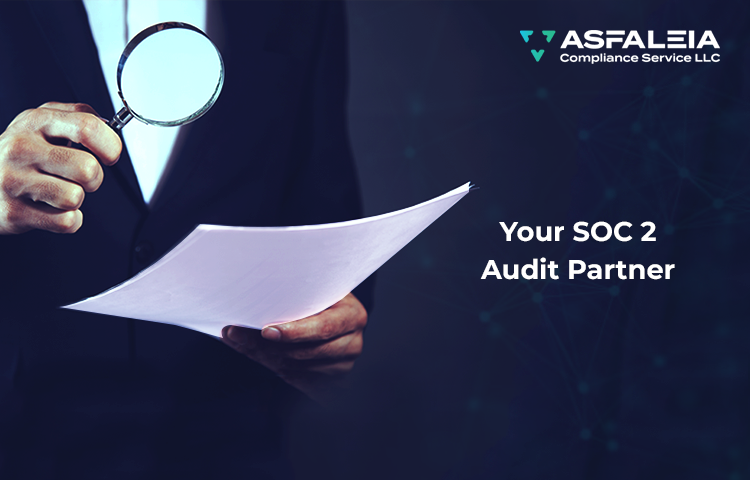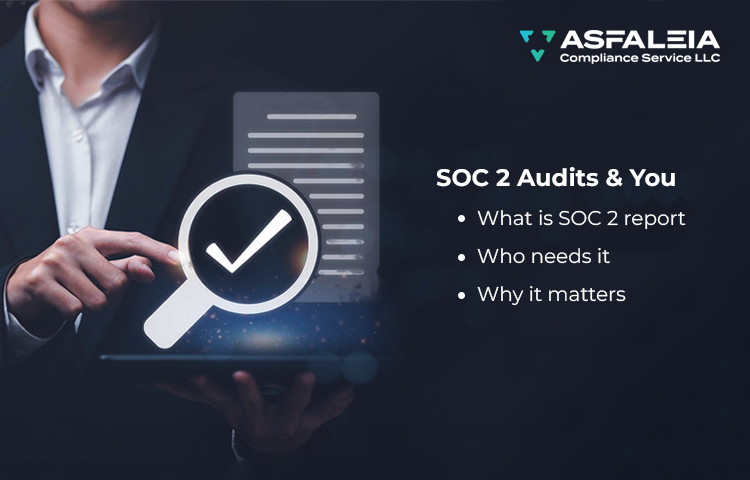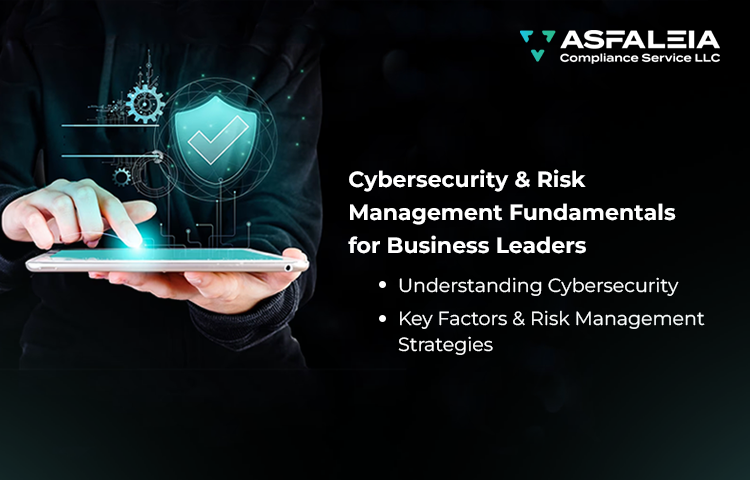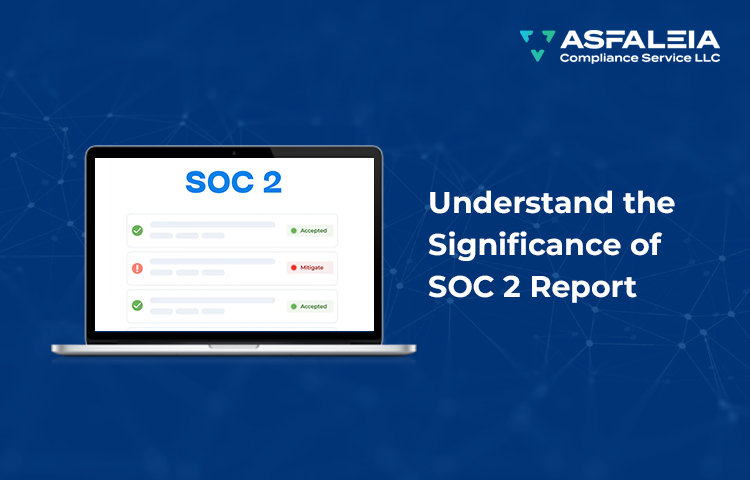In today’s technology-driven business landscape, organizations heavily rely on services like cloud hosting, online payment processing, and innovative software applications to streamline their operations. While these advancements have revolutionized the workplace, they also have inherent risks.
Technology, as we know, is a double-edged sword that can expose businesses to potential cyber threats such as data breaches, extortion, and malware attacks. To mitigate these risks and ensure the safety of their operations and sensitive information, organizations turn to the System and Organization Controls 2 Audit (SOC 2).
This comprehensive audit, developed by the American Institute of Certified Public Accountants (AICPA), focuses on data security, privacy, and organizational controls.
Understanding SOC 2 Audits
SOC 2 audits assess the trustworthiness and security of service organizations that handle sensitive data on behalf of other companies. These audits evaluate the organization’s adherence to the Trust Service Criteria (TSC), which encompass five key areas:
- Security
Assessing the effectiveness of security controls to protect against unauthorized access, data breaches, and system vulnerabilities. - Confidentiality
Evaluating measures implemented to safeguard sensitive and confidential information, ensuring authorized individuals only access it. - Processing Integrity
Verifying the accuracy, completeness, and reliability of data processing operations to maintain the integrity of information. - Availability
Assessing the accessibility and uptime of systems and services, ensuring they are consistently available for authorized users. - Privacy
Examining the organization’s policies and procedures to protect personally identifiable information (PII) in compliance with relevant regulations, such as GDPR or CCPA.
Who Needs SOC 2 Audits?
Any organization outsourcing technical and data-related services, such as hosting, colocation, or Software as a Service (SaaS), should consider undergoing a SOC 2 audit. Clients who entrust their data to service organizations have concerns about data security and privacy breaches.
By obtaining a SOC 2 report, service organizations can assure their clients that their data is handled and protected with the utmost care and adherence to industry standards. SOC 2 audits are particularly relevant for finance, healthcare, and e-commerce businesses, where data security is paramount.
SOC2 audits help in safeguarding business interests, protecting client privacy, and compliance regulations.
Preparing for a SOC 2 Audit
While a third-party audit may seem daunting, proper preparation can streamline the process and maximize its value for your organization.
Key steps to consider for SOC 2 Audit:
- Understand the Need
Before embarking on a SOC 2 audit, assessing whether it is the most appropriate solution for your organization is essential. Consult with experts to determine if there are alternative, more cost-effective measures that can achieve similar objectives. - Outline the Right Scope
Identify your organization’s specific services, the individuals delivering those services, and the processes necessary to meet contractual obligations. By narrowing down the scope of the audit, you can save time and resources while focusing on areas with higher risks and security concerns. - Choose a Trustworthy Audit Firm
A Certified Public Accountant (CPA) firm specializing in SOC 2 audits must conduct the audit. Choosing an audit firm with the expertise and experience is crucial to guide you through the audit process effectively.Look for a firm that offers tailored solutions rather than a one-size-fits-all approach, ensuring you receive the right support and guidance. - Gather Documentation
Your auditor will guide the specific documentation required for the audit. That said, gathering relevant documentation related to asset inventories, onboarding and offboarding processes, organizational charts, and information security processes is helpful. - Collaborate with Your Auditor
Maintain open and proactive communication with your auditor throughout the audit process. By working closely with your auditor, you can ensure that the audit progresses efficiently and effectively, promptly addressing any potential issues or gaps.Regularly assess what additional information or clarification may be required and be prepared for on-site visits.
Asfaleia: Your SOC 2 Audit Partner
We at Asfaleia specialize in SOC 2 audits . We stay updated with the evolving data security landscape.
Our expert team will guide you through the entire audit process, providing personalized solutions aligning with your organization’s needs. Together, we create a secure and resilient future for your business.

SOC 2 AuditsFrequently Asked Questions
-
How do SOC 2 audits benefit clients?
SOC 2 audits assure clients that their data is being handled and protected according to industry best practices. SOC 2 report from a licensed CPA firm allows clients to evaluate the effectiveness of controls and make informed decisions about data security partnerships.
-
What is the difference between SOC 2 Type I and Type II audits?
- A SOC 2 Type I audit evaluates the design and implementation of controls at a specific point in time
- A SOC 2 Type II audit assesses the effectiveness of controls over a period of time (usually six months or longer).
-
How long does a SOC 2 audit take?
The duration of a SOC 2 audit depends on the organization’s size, complexity, and scope. Typically, it can range from several weeks to a few months.
-
What is included in a SOC 2 report?
A SOC 2 report includes:
- A description of the audited organization’s system
- An assessment of controls
- Any identified control deficiencies
- An overall opinion regarding the effectiveness of controls
-
Can a SOC 2 report be shared with customers?
SOC 2 reports are not intended for the general public.Their distribution of SOC 2 reports is generally limited to:
- Current and prospective customers who want to assess the service organization’s security, availability, processing integrity, confidentiality, and privacy controls
- Business partners who need to understand the service organization’s controls in order to assess their own risks
- CPAs who provide services to current and prospective customers or business partners of the service organization
-
How often should a SOC 2 audit be performed?
The frequency of SOC 2 audits depends on factors such as regulatory requirements and customer expectations.Typically, organizations undergo annual SOC 2 audits, but more frequent audits may be necessary for certain industries or due to specific contractual obligations.
Experience efficiency, expertise, and cost-effective solutions.



